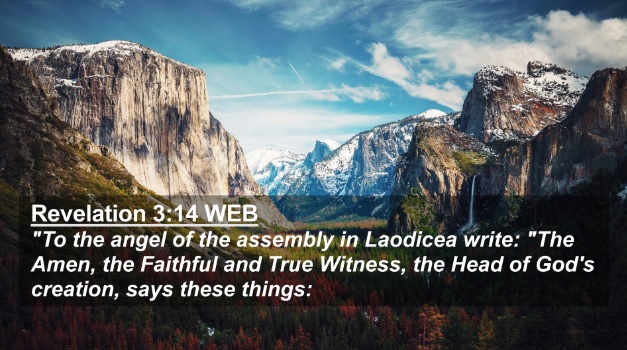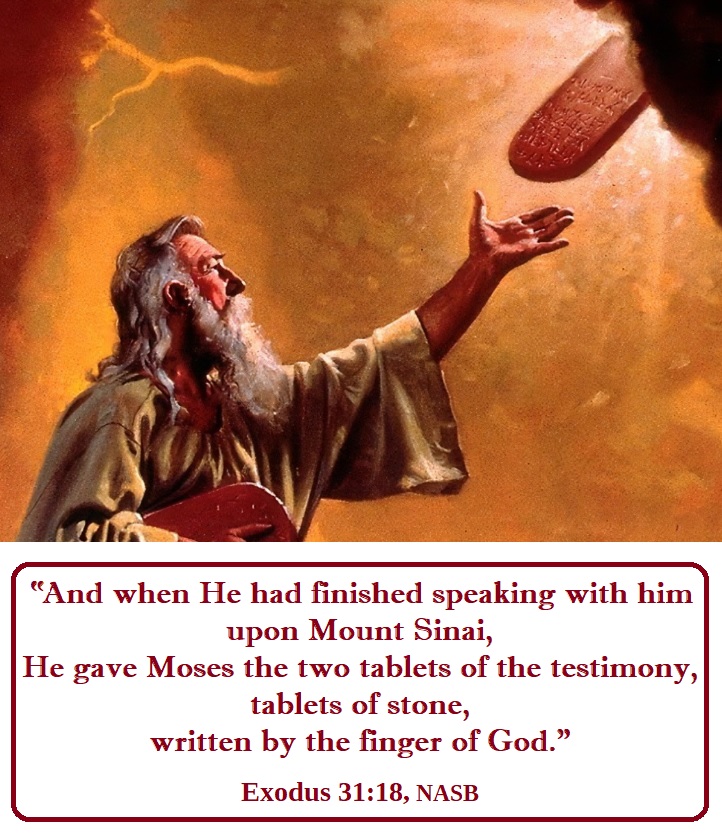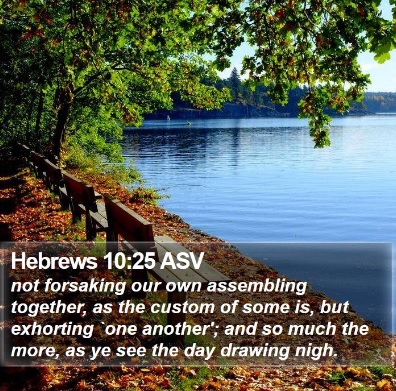“Go therefore and make disciples of all the nations…teaching them to observe all that I commanded you; and lo, I am with you always, even to the end of the age” (Matthew 28:19-20, NASB).
——————–
Contents
1) “A Man After God’s Own Heart” (Jarrod Jacobs)
2) Be Holy (Jesse A. Flowers)
——————–

-1-
“A Man After God’s Own Heart”
Jarrod Jacobs
The statement above is well-known to most people. This statement, while not the exact Bible quotation, is based on the words of Scripture found in I Samuel 13:14 and Acts 13:22. In both passages, we see reference made to David, the second king of Israel. He was the one God describes as being “after His own heart.” In fact, God makes it clear that David “did what was right in the eyes of the LORD and did not turn aside from anything that he commanded him all the days of his life, except in the matter of Uriah the Hittite” (I Kings 15:5). What made David a man after God’s own heart? What characteristics stand out when we think of this wonderful Bible character? Can we possess those characteristics today? Let us answer these questions.
What Made David A Man After God’s Own Heart?
The answer to this question is not hard to find. In I Samuel 13:14, after Saul had sinned in offering the sacrifice before the battle with the Philistines (vv. 9-10), God inspired Samuel to condemn the action and then pronounce this judgment: “You have done foolishly. You have not kept the command of the LORD your God, with which he commanded you. For then the LORD would have established your kingdom over Israel forever. But now your kingdom shall not continue. The LORD has sought out a man after his own heart, and the LORD has commanded him to be prince over his people, because you have not kept what the LORD commanded you” (vv. 13-14).
I Samuel 16 records God’s selection of David as the next king of Israel. By simply reading I Samuel 13, we see that David was “a man after God’s own heart” because he was obedient to the Lord! Evidently, God saw in David a characteristic not found in Saul, and that was his consistency and fortitude to continue to obey God even when it was hard to do! Those who read of the life of David have to be impressed with his consistency and faithfulness to the Lord through his life.
Another attribute that makes David “a man after God’s own heart” would be his willingness to repent of sins. At no time should we equate “a man after God’s own heart” with sinlessness. This is not the case with David because he sinned at times. Some recorded occasions of sin include the time he sinned with Bathsheba and murdered Uriah (II Sam. 11-12). Also, the time he allowed the ark to be brought back on the new cart; (resulting in the death of Uzzah) rather than looking for the Levites who could correctly transport the ark back to Jerusalem (II Sam. 6). On another occasion, David committed the sin of acting when God had been silent when he numbered the people (II Sam. 24). This resulted in the deaths of 70,000 men. In each case, David repented and determined to do better in the future. He relied upon God and went to God for forgiveness. His attitude is probably best summed up in his words, “Let us fall into the hand of the LORD, for his mercy is great; but let me not fall into the hand of man” (II Sam. 24:14). With his godly attitude, it is not surprising that we read the following words of advice to Solomon: “Be strong, and show yourself a man, and keep the charge of the LORD your God, walking in his ways and keeping his statutes, his commandments, his rules, and his testimonies, as it is written in the Law of Moses, that you may prosper in all that you do and wherever you turn” (I Kings 2:2-3).
In connection with the above, we also see David as a humble man. He humbly repented before God when he sinned. Notice also that though he was king of Israel, and the victor in many battles, he still remembered, “The Lord is my shepherd …” (Ps. 23:1). He freely confessed, “I am poor and needy” (Ps. 86:1). He was truly a humble man.
David was a man of faith as well. Remember that when he went out to meet Goliath in battle, he said, “You come to me with a sword and with a spear and with a javelin, but I come to you in the name of the LORD of hosts, the God of the armies of Israel, whom you have defied. This day the LORD will deliver you into my hand, and I will strike you down and cut off your head. And I will give the dead bodies of the host of the Philistines this day to the birds of the air and to the wild beasts of the earth, that all the earth may know that there is a God in Israel, and that all this assembly may know that the LORD saves not with sword and spear. For the battle is the LORD’s, and he will give you into our hand” (I Sam. 17:45-47). This is but one of many examples we could cite that shows David’s great faith. He believed in God, and believed God! Doesn’t God expect the same of us today (Heb. 11:6)?
We can also say David was a patient man. Though chosen to be king over Israel (I Sam. 16), he did not lead some kind of coup, or rebellion against Saul. In fact, he would not lift a hand to harm “the Lord’s anointed” in any way, nor did he encourage others to do harm to him (I Sam. 24:4-7)! He was patient and waited until the time was right to serve as king of Israel. Only after Saul’s death, and the time of mourning was passed did he ask God if he ought to go to the cities of Judah (II Sam. 2:1). Even at that time, he did not just “assume the throne”! In addition to this, David’s patience is seen when he wanted to build the Temple, but God would not let him do it (II Sam. 7). He was satisfied to gather the materials and wait for his son to build the Temple (I Chron. 22:2-4, 14-16, 29:2-7). He did not overrule God’s decision and start building the Temple, but was patient and did as God wanted. What wonderful examples of patience by David.
Could It Be Said That You Are One After God’s Own Heart?
Notice David is not called “the” man after God’s own heart, but he is “a” man who fit this description. Evidently, God acknowledges that there are others who could also be described in this way. Friend, be honest and examine yourself (II Cor. 13:5). Could God describe us as a man/woman “after His own heart”? If not, why not? What part of our lives have we decided do not belong to the God of Heaven? Have we decided that we can’t be a “person after God’s own heart” because we’re not “good enough”? I hope that through this study, it is made clear that it is not a matter of someone being “sinless,” for this is impossible (Rom. 3:23). It is a matter of self-sacrifice for the Lord and the willingness to be corrected and repent to God when we see that we are in error. We need to learn to be that “living sacrifice” for the Lord (Rom. 12:1-2) and give Him our all. Let us stand as David and be someone “after God’s own heart.” When we determine we will show humility, faith, patience, and obedience to God in our spiritual lives, we will be someone “after God’s heart” won’t we? Let us learn a lesson from the life of David, and let us apply the attributes of his life to our own (Rom. 15:4; I Cor. 10: 11). When we do this, we will grow closer to God and do much to prepare ourselves for an eternity in Heaven.
— Via The Old Paths, Volume 21, Issue 13, May 25, 2014
——————–
Colossians 3:17
“Whatever you do in word or deed, do all in the name of the Lord Jesus, giving thanks through Him to God the Father.”
— NASB
——————–

-2-
Be Holy
Jesse A. Flowers
“But as He who called you is holy, you also be holy in all your conduct, because it is written, ‘Be holy, for I am holy’” (1 Peter 1:15-16).
Perhaps no attribute of God is emphasized more to us in the Scriptures than His holiness (Isa. 6:3; Rev. 4:8). God is holy in that He is absolutely pure. He is unstained by sin and evil. He is perfect in every way. As the apostle John expressed it, “God is light and in Him is no darkness at all” (1 John 1:5). And based upon God being holy, we His children are called upon to be holy too (1 Thess. 4:7).
The root idea of holiness is that of separation from a life of habitual sin and all worldly defilement. Holiness entails dedication (consecration) to the service of God. A life of holiness has always been required of God’s covenant people (cf. Lev. 11:44-45; 19:2; 20:26), and such a requirement has always been based upon God’s own holiness – “be holy, for I am holy.”
The apostle Peter makes it abundantly clear to his Christian readers that we are not to simply be holy in certain areas of our life, but we are to be holy in ALL of our conduct (behavior). Our thoughts are to be pure and holy (Phil. 4:8). Our words (our speech) are to be completely holy (Eph. 4:29). Our lives are to be without spot and blameless (2 Peter 3:14). The clothing we wear is to profess our godliness (1 Tim. 2:9-10). The things that we watch, the audio that we listen to, and the places that we go must be rooted in our holiness.
In fact, a life of holiness ought to be our daily pursuit, knowing that we will not see the Lord or be with the Lord if it is absent from our life (Heb. 12:14). As Paul penned: “Beloved, let us cleanse ourselves from all filthiness of the flesh and spirit, perfecting holiness in the fear of God” (2 Cor. 7:1). May we earnestly strive to “be holy and without blame before Him in love” (Eph. 1:4).
— Via Articles from the Knollwood church of Christ, January 2024
——————–
The Steps That Lead to Eternal Salvation
1) Hear the gospel — for that is how faith comes (Rom. 10:17; John 20:30-31).
2) Believe in the deity of Jesus Christ, the Son of God (John 8:24; John 3:18).
3) Repent of sins. For every accountable person has sinned (Romans 3:23; Romans 3:10), which causes one to be spiritually dead (Ephesians 2:1) and separated from God (Isaiah 59:1-2; Romans 6:23). Therefore, repentance of sin is necessary (Luke 13:5; Acts 17:30). For whether the sin seems great or small, there will still be the same penalty for either (Matt. 12:36-37; 2 Cor. 5:10) — and even for a lie (Rev. 21:8).
4) Confess faith in Christ (Rom. 10:9-10; Acts 8:36-38).
5) Be baptized in water for the remission of sins (Mark 16:16; Acts 2:38; 22:16; 1 Pet. 3:21). This is the final step that puts one into Christ (Gal. 3:26-27). For from that baptism, one is then raised as a new creature (2 Cor. 5:17), having all sins forgiven and beginning a new life as a Christian (Rom. 6:3-4). For the one being baptized does so “through faith in the working of God” (Col. 2:12). In other words, believing that God will keep His word and forgive after one submits to these necessary steps. And now as a Christian, we then need to…
6) Continue in the faith by living for the Lord; for, if not, salvation can be lost (Matt. 24:13; Heb. 10:36-39; Rev. 2:10; 2 Pet. 2:20-22).
——————–
Tebeau Street
CHURCH OF CHRIST
1402 Tebeau Street, Waycross, GA 31501
Sunday: 9 a.m. Bible Classes and 10 a.m. Worship Service. Congregational Song Service: 5 p.m. for every first Sunday of the month.
Wednesday: 7 p.m. Bible Classes
evangelist/editor: Tom Edwards (912) 281-9917
Tom@ThomasTEdwards.com
https://thomastedwards.com/go/all.htm (This is a link to the older version of the Gospel Observer website, but with bulletins going back to March 4, 1990.)

















